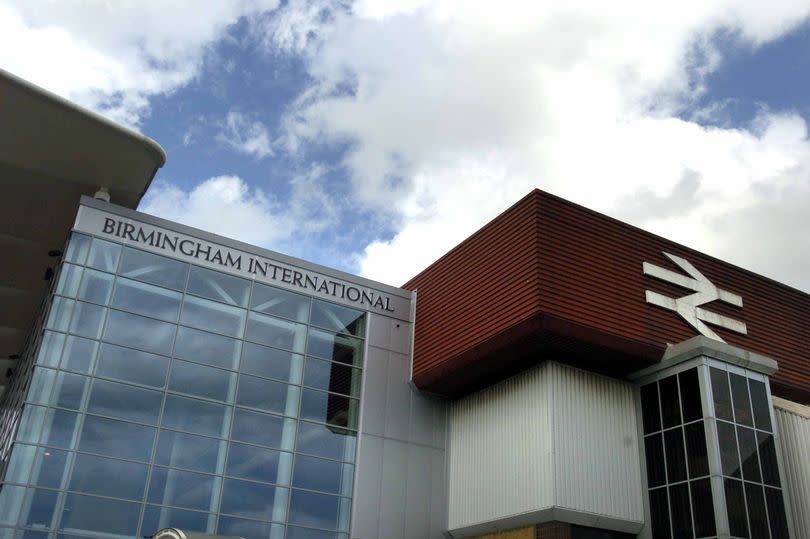City rail staff 'hide from public' 'in shame' over train standards, says ex-MP

Staff at one of the Midlands' biggest railway stations have confessed to "hiding from the public" because they are "ashamed" of the service offered to passengers, a former MP has claimed. Ex-railwayman Lord Snape told the House of Lords workers at Birmingham International, which serves the city's airport and the NEC, had admitted to hiding away in embarrassment over the "product" on offer.
The former Labour MP for West Bromwich East represented the area for more than 25 years and remains active in Parliament in the Lords. He told a discussion on rail standards: "The failings of our railway network are many and manifold.
"I use Birmingham International station on a regular basis to travel to and from London. The staff there tell me that on some days they hide from the public because they are so ashamed of the product that they have to put in front of them."
READ MORE: Murderer nods as he's given huge sentence for drug deal ambush stabbing
The debate also heard that experienced train managers were living in fear of going to work, unsure if they would have the necessary supplies or functioning equipment, leaving them vulnerable to the wrath of disgruntled passengers.
These issues were raised during a transport debate in the upper chamber, which coincided with Labour's announcement of plans to renationalise the railways should they win the general election. Speaking at Westminster, Labour peer and former railway worker Lord Snape said:
Lord Snape also highlighted the high rate of daily cancellations leading to a "collapse of morale" among industry workers. He went on: "They also say that, by and large, information is not transported down the line no pun intended to those at the front end so that they can pass it on to passengers."
"They are as unaware as the rest of us of when things go wrong and how they can be put right."
Liberal Democrat peer Lord Goddard of Stockport echoed these sentiments, criticising the unreliability of services. He said: "If you talk to train managers who have been there for 20 or 25 years, they will tell you they are absolutely terrified of turning up for work. They have no idea whether the stock will be there and the kit will work, and they take abuse from the public, day in, day out. That is absolutely unacceptable."
Concerns over the current state of rail services were also raised on the Government's own benches. Tory former minister Lord Bourne of Aberystwyth commented: "The system is creaking badly. We see it every day and it is harming our economy."
Independent crossbencher and former BBC boss Lord Birt, who served as a strategy adviser to Tony Blair, argued the UK's transport system was "not remotely fit for purpose". He said: "The train from Liverpool to Norwich, passing through and stopping at some of our great cities Manchester, Sheffield, Nottingham and Peterborough takes five-and-a-half hours. If, rather than take the train from Liverpool to Norwich, you decided instead to fly from Liverpool to Sharm el-Sheikh, you would reach Sharm el-Sheikh more quickly than you would Norwich.
"As in so many areas of our national life, we are now operating in slow motion as a country. We need to get a grip. We need massively to raise our game.
"In transport, we need to learn from the rest of the world and identify what kind of infrastructure is needed in a crowded country heading towards and beyond a population of 70 million."
"We need to accept it will take 25 to 50 years to create, but we need to start now."
Responding, transport minister Lord Davies of Gower said: "The department has been clear that the current performance of the railway is unacceptable. The industry needs to make significant improvement to deliver the punctual and reliable services that passengers and taxpayers deserve."
"That is why the department has regular high-level meetings on punctuality and reliability with both Network Rail and representatives of the train operators to hold rail partners to account."

 Yahoo News
Yahoo News 
